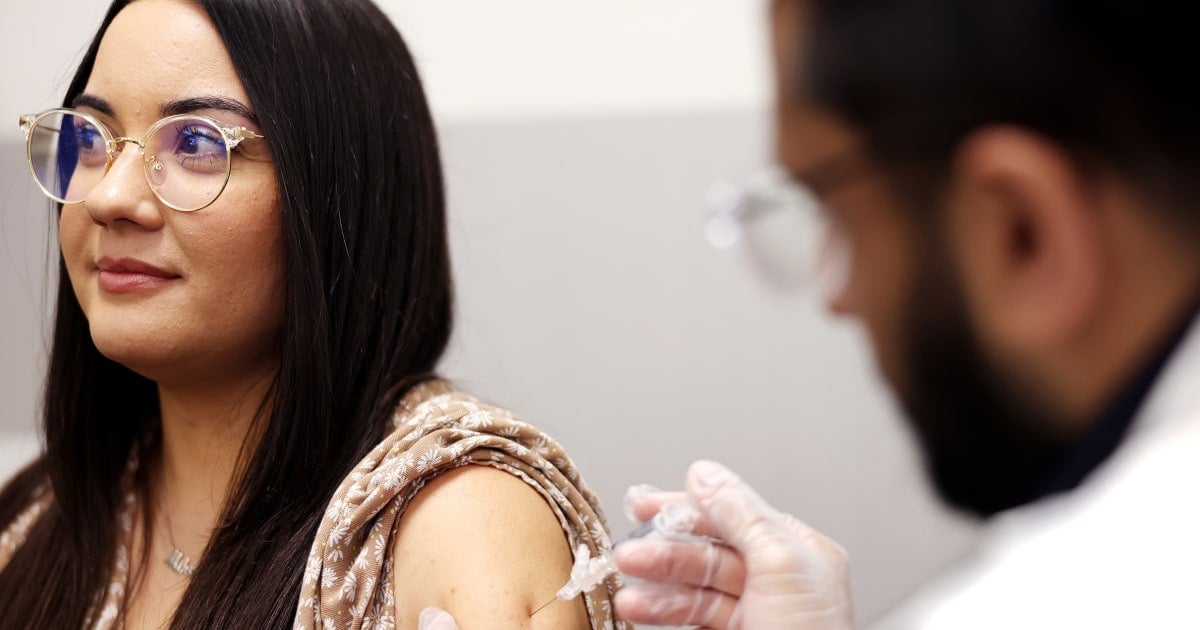“It’s a bad day for infectious diseases,” said Dr. Ofer Levy
I would argue it’s a great day for infectious diseases, but a bad day for humanity.
Let’s pray for Trump and all the geriatric scum in congress getting the flu.
The circumstances for a bird flu pandemic are already shockingly perfect in the US and they get worse every day.
Bird flu is running free in US farms, with limited attempts to stop it. The chances of it moving in to humans is already very high in fhe US. And the CDC is barely monitoring this anymore, the US has left WHO and now the US is abandoning flu vaccines.
The US is a perfect incubator for a major flu pandemic. It will be random luck as to how deadly a coming flu pandemic will be, but its been given the best chance to develop and spread. This is increasingly scary.
I have found myself asking this a bit recently… What the fuck, America?
Idk. I did my part. I cannot speak for the others. I can say that I dislike them.
The majority of us did not vote for this. And we’re trapped. We can’t riot like the French do; we’ll lose our jobs and our healthcare and our houses.
This has been long in the making.
SLPT: Those who lose everything have nothing to lose.
That fucking wormy-brained piece of shit.
He got the shit batch of bargain worms from Wish. He can’t even play the Holophoner.
The route from NYC to the nearest pharmacy across the Canadian border about to be a silk road for vaccines.
I wonder, how many countries rely on the recommendations of the FDA to determine which vaccine strains to put in their vaccines for the year. Does Canada?
Just for some background information on how most countries tend to rely on larger, more rigorous regulatory bodies…
I am in the pharma industry (not in vaccines though). Typically the two main regulators that most other countries look to as a reference are either the FDA or the EMA (the EU organization). This usually means that if you can satisfy the requirements of one of these bodies, then it is satisfactory for the other country as well. However, it isn’t universal as each other country will usually have some modifications here and there for whatever reason. The most annoyingly particular ones I have dealt with in the past are China and Japan.
Hey, the NHS in the UK sometimes does things, too!
Looks like the WHO also leads vaccine strategy meetings, according to the ECDC. https://www.ecdc.europa.eu/en/seasonal-influenza/prevention-and-control/vaccines/vaccination-strategies
So I think the odds that no vaccines are available in the US are low, but I don’t know if the same flu strains are targeted across the pond.
Aren’t eggs a major component in producing the vaccine? Maybe that’s part of the problem?
Bird flu + reduced egg supply = ??
https://www.cdc.gov/flu/vaccines/egg-allergies.html
"Most flu shots and the nasal spray flu vaccine are manufactured using egg-based technology. Because of this, they contain a small amount of egg proteins, such as ovalbumin. However, studies that have examined the use of both the nasal spray vaccine and flu shots in egg-allergic and non-egg-allergic patients indicate that severe allergic reactions in people with egg allergies are unlikely.
Although people who are allergic to eggs should receive flu vaccine, people with some other allergies should not."
https://pmc.ncbi.nlm.nih.gov/articles/PMC7047267/
"Growing influenza viruses in eggs is the oldest way of making flu vaccines. Scientists inject a live virus into an embryonated egg, let the virus replicate, collect the replicates, purify them, and then kill them. They use those inactivated viruses to make the flu vaccine.
Influenza vaccines are generally made from inactivated flu viruses so that getting a flu shot won’t make a person sick, but the inactivated version can still jump-start the immune system. Flu viruses make antigens—toxins released by a virus—which cause an immune response. Sensing an antigen causes the body to produce antibodies—specific proteins made to fight a specific antigen. If the person later encounters that virus circulating in the wild, the antibodies will recognize the virus’s antigens and attack."
Somehow I think that the price of eggs is only a small contributor in the cost for vaccine manufacturing. Don’t worry, there are still enough eggs.
Probably less of a pricing problem and more of a sourcing problem. Imagine growing a vaccine in eggs from bird flu infected chickens. You want a new pandemic? Because that’s how you get a new pandemic.
Good point.






